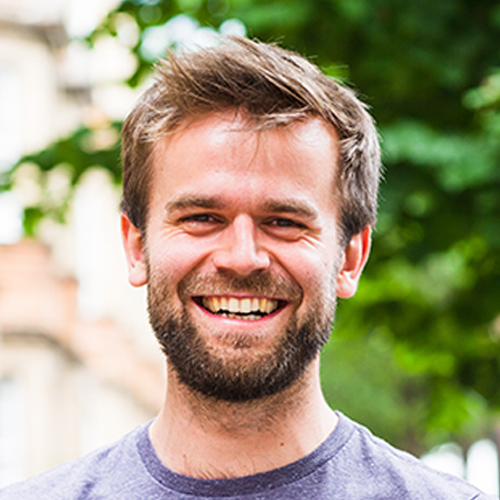I haven’t told my boss yet, but I’ll let you in on a secret, I gave up doing overtime for Lent. Most people opt for chocolate or alcohol or some other mild addiction, in my case it would have been tea. But shortly before Lent began, I admitted I was seriously addicted to an every-waking-hour, productive concoction of achievement and efficiency. So I gave it up.
Right now, if you’re questioning what’s wrong with efficiently getting things done whilst simultaneously always answering ‘how are you?’ with a variant of ‘busy’ or ‘tired’, then I dare to say you have a similar unhealthy addiction. One you’ve yet to address, or possibly even recognise.
Normally, efficient productivity is praised. In fact, I think my addiction arose precisely because people praise you for achieving things in an efficient and productive manner. I’m needy, I want people to like me. Doing things fast and well makes people like you, most of the time.
Yet my socially acceptable addiction has been slowly crushing the joy out of my life. Constantly seeking to achieve more by being more productive in every area of your life is tiring. You can never finish. If you become more efficient, it creates more time for you to be efficient in. It’s highly productive, successful and dangerous.
It’s left me endlessly looking ahead at the things I don’t have yet: a house, a spouse, a high-flying career, a Masters, and you can chuck in a sub-3-hour marathon, a semi-professional football contract and whatever else someone in my peer group has just done. Just writing that list is like seeing a list of accusations, rooted in my shortcomings.
But if I rewind the clock just a few years, the situation I’m in now is exactly what I was striving for. I’m where I wanted to be by this stage of life, but I can’t stop to celebrate, because that wouldn’t be productive. The horizon is always on the move.
Asides aside, what did I learn from giving up doing extra hours during Lent?
Initially, nothing.
I simply filled my time with other things, activities and non-work related ambitions.
Until I decided to take a full and complete day a week off from achieving anything. Anything beyond a leisurely selection of life-giving activities and celebrating what I currently have. Feasting, sleeping, taking joy in the little things, aimless delight and creativity are all in. No emails, admin, cramming stuff in or sorting stuff out.
But it’s not a new idea. In fact, it’s thousands of years old.
It’s called Sabbath. The principle goes something like this, ‘Six days you shall labour and do all your work, but the seventh day is a sabbath’ [1].
The original Hebrew word for Sabbath is ‘Shabbat’ and it’s a verb meaning rest. I’ve found Shabbat is a skill, like many other doing words, requiring practice and preparation.
The more I’ve given over one day a week to rest and celebration, the more I’ve found joy infiltrate my life. Cooking shifts from necessary fueling to creative feasting. There is no time pressure. I no longer have to justify every activity to myself. It allows me to ignore the little voice that endlessly whispers my to do list in my ear and urges me to keep my work phone on, even when I’m off the clock.
Sabbath allows a mindset shift.
A shift away from an idiotic belief that lies behind that little voice. And I say idiotic to provoke a reaction. Your inability to stop implies that this issue/this situation/the entire world (delete as appropriate) would fall apart without you. It puts everything on you, and you alone, to get the job done. You are the centre of the universe. And if you’ve ever taken annual leave or been ill, you’ve probably found it almost upsetting that everything keeps going without you.
We all know we aren’t the centre of the universe. We know we are limited human beings, not machines. It’s obvious when you spell it out. Yet we embrace a machine-like mentality of endless efficiency that claims we must always do more.
At its heart, that mentality is underpinned by a lack of trust. You can’t rest if you don’t trust that six days really are enough and that the seventh really is a day off. The little voice niggles, just send that email or do that task. It can’t wait.
For me, trust is relatively straightforward. After all, Sabbath is a idea from the being I believe to be the centre of the universe, God. I’ve therefore found that giving over one day a week to rest, as God asks us to do, isn’t too hard when I believe that ultimately he is in charge. My decision to rest isn’t the be all and end all in the course of human history, shock!
But that’s not very helpful if you aren’t Christian.
However, what I have found to be absolutely fascinating is how well Christianity fits the human condition. Take this whole subject of busyness vs rest. If I gave you ten commandments for humankind, would you really make having a day off a week one of them? Yet it’s brought me deep joy and a far more healthy perspective on my life.
I believe Sabbath is just one example of the Creator knowing his creation. Almost countless studies show the positive effect faith has on mental health and wellbeing [2]. Religious practice is praised by an atheist professor for bringing out the best in people [3]. My faith in Jesus also satisfies my deep longing to live with true purpose. In every area of my life, I’ve found Christianity to be emotionally satisfying and completely on point in explaining our humanity.
So why not put it to the test? As I am doing. Taste and see whether or not God really knows his creation.


